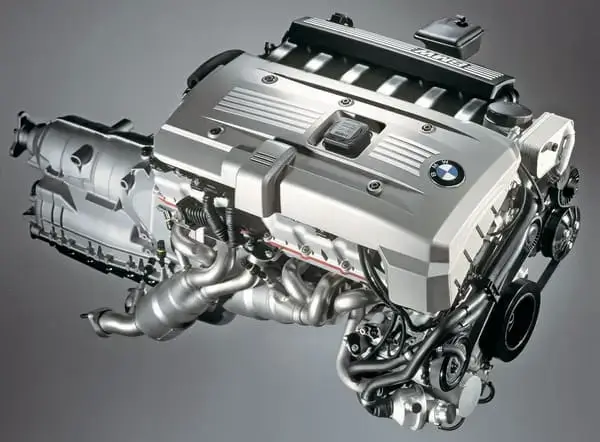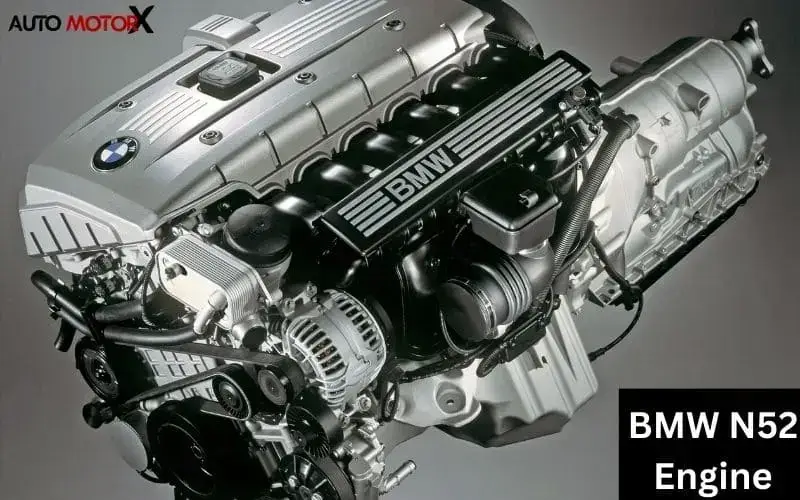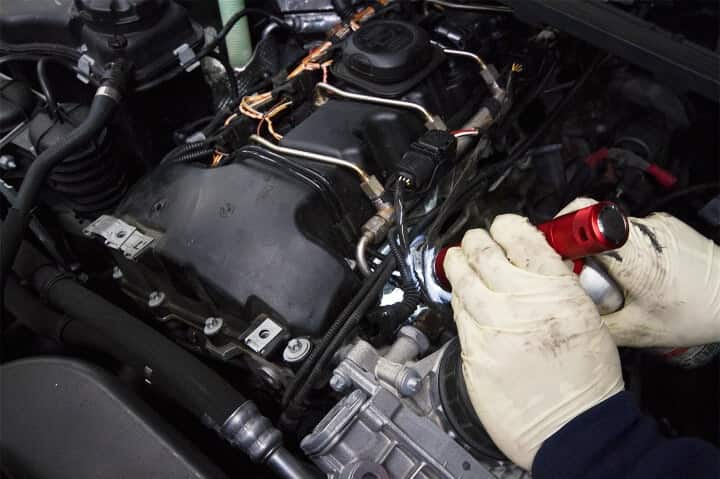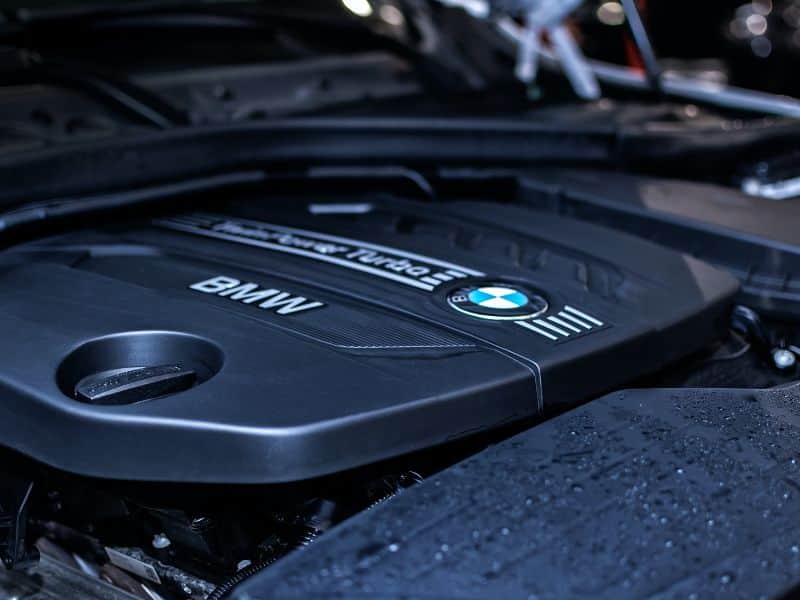BMW is well known for its advanced technological innovations in the automotive world. They stand at the pinnacle of delivering cars with great performance, luxury, and innovation.
And by the year 2000s BMW had made a reputation for producing the most technologically advanced naturally aspirated inline-six engines. At this time BMW launched the M54, which wrote the name of BMW in the automotive industry as one of the best inline six-cylinder producers.
And then comes the successor of M54, the legendary N52 engine that cemented BMW’s place in the business.
The N52 is a naturally aspirated six-cylinder engine, produced between 2004-2015. This was launched in the E90 3 Series and E63 6 Series, then this came in multiple models and was in production for over a decade. This was the first ever water-cooled engine to use magnesium and aluminium composite construction on its engine block.
After a long 11 years, the N52 retired with pride as the last naturally aspirated engine produced by BMW. Then all the N52 models were transferred into the turbochargers. The name of the N52 engine is written in history as one of the most reliable engines ever.
You could imagine the reliability and performance of the engine by knowing that The N52 was listed in the Ward’s 10 Best Engines in 2006 and 2007.
So, let’s take a deep dive and learn everything about the N52 engine.
BMW N52 Engine Overview
As you know the N52 is a naturally aspirated inline-six engine, which is combined with a magnesium and aluminium engine block. That made the engine lighter and also very durable.
As Magnesium is lighter than aluminum, however, it has a very high chance of corrosion. And to tackle that BMW’s genius idea was to make an innovative block design with a magnesium crankcase shell around an aluminum inner block. BMW also uses Alusil for the cylinder liners & hollow camshaft. This not only eliminates the magnesium limitations but also reduces the weight and increases the engine’s durability.
And in exchange, N52 becomes an engineering masterpiece that is compared to the legendary 2JZ ‘GE’.
Also Read: BMW N52 Reliability: The Great Natural Aspirated Engine
BMW also uses some modern BMW tech like upgraded Valvetronic variable valve lift technology, Double VANOS(variable valve timing), electronic throttle control, electric water pump, a variable output oil pump, and the DISA variable length intake manifolds on the higher output versions.
BMW N51 vs N52
The N51 is the half-sibling of the N52, which was born out of the need to make an efficient SULEV (Super Ultra Low Emissions Vehicles) version of the N52. This engine was sold in some parts of the United States that had SULEV legislation passed.
The N51 is almost similar to the N52, apart from a few changes that made it more efficient in terms of emissions regulations. The N51 uses a three-stage Variable-length intake manifold (“DISA”) instead of one, also it has a lower compression ratio down from 10.7:1 to 10.0:1.
The other vital differences are the revised combustion chamber and the cylinder heads, which were made to stick to the “SULEV” regulations. Also, the cylinder head cover, integrated crankcase ventilation system, and upgraded underbody catalysts were different.
Apart from all the differences both have the same power output.
To know about this in detail visit here: BMW N51 vs N52: Differences You Should Know
BMW N52 vs N52K
The N52K is the slightly updated version of the BMW N52, which was released in September 2006.
The changes were pretty minor, but still very important. It was specially launched to fix the N52 lifter ticking issue and also in response to the cold weather performance.
Though the lifter ticking noise was very severe for many N52 drivers, and with the N52K BMW tried to fix that, but they could only alleviate the issue.
The main update you could see is the updated crankcase ventilation system integrated into the cylinder head cover, second generation electric coolant pump, and larger 6mm sten diameter exhaust valves. Other minor updates like a new DME with the MSV80 designation, crankshaft, camshafts, throttle valve, and torsional vibration dampener.
N52 Engine Specs
| Configuration | Inline Straight-6 |
| Displacement | 2,497cc (2.5L) To 2,996cc (3.0L) |
| Engine block material | Magnesium/Aluminum |
| Cylinder head material | Aluminum |
| Aspiration | Naturally Aspirated |
| Fuel System | Port Injection |
| Valvetrain | DOHC, Double VANOS, Valvetronic |
| Cylinder bore & Stroke | 82 mm x 78.8 mm (2.5L) to 85 mm x 88 mm (3.0L) |
| Compression Ratio | 10.7:1 |
| Horsepower | 174 HP-268 HP |
| Torque | 170lb-ft (230 N⋅m) – 232 lb-ft (315 N⋅m) |
BMW N52 Available Variants

BMW N52 offers two variants the 2.5L and 3.0L, which are the N52B25 and the N52B30 respectively. Within these variants, you can see different sub-variants with different power outputs.
N52B25 Variant (2.5L)
The 2.5L N52B25 variants were produced between 2005 and 2011, and have three tuning sub-variants.
The N52B25 has 174bhp, 201bhp, and 215bhp variants, with a torque of 170 lb-ft to 184 lb-ft (250 N⋅m) at 2,750-4,250 rpm max.
N52B30 Variant (3.0L)
The N52B30 was produced from 2006 to 2015 and is the most popular and longer-running version of the N52.
This engine had seven engine tuning subvariants of 215 bhp, 228 bhp, 241 bhp, 255 bhp, 261 bhp, and 268 bhp. This had a torque of 199 lb-ft to 232 lb-ft(315 N⋅m) max at 2,750 rpm.
All the tunes had the same bore x stroke figure of 85x88mm and a compression ratio of 10.7:1. However some updates like the intake manifolds and ECU were done to make different peak performances.
Which BMW Has The N52 Engine
Various BMW models use the N52 engine, like different generations of 3-Series, 5-Series, 6-Series, 7-Series, Z4, and X series SAVs. Let’s look at some models that use the N52 engine.
BMW N52B25
The 2.5L N52B25 was used in E90 323i, E60/E61 523i, F10 523i, E83 X3 2.5si, E85 Z4 2.5si, E89 Z4 sDrive23i and much more.
This has long production on the E60/E61 525i, 525xi, E90/E91/E92/E93 325i, 325xi, but it was never sold in the US and Canada market.
BMW N52B30
The more popular 3.0L N52B30 has been used in various BMW models. It was used in models like E90/E92/E93 325i, 325xi, E60/E61 525i, 525xi. The N52B30 was also used in E83 X3 3.0si, E70 X5 3.0si, E63/E64 630i, F25 X3 28i, F01 730i and many more.
To know more about the BMW models that have the N52 engine visit here: What BMW Models Has the N52 Engine?

What Are The Common BMW N52 Engine Problems
In the world of inline-six engines, the BMW N52 has its own place. In comparison to other inline six-cylinder engines, the N52 came as a German engineering marvel that can stand the test of time.
They are reliable as long as you maintain proper service according to the manufacturer’s guidelines. However, anything mechanical the N52 also faces some common problems occasionally.
Here are some common BMW N52 problems that you should be aware of, especially if you’re in the market buying a car with the N52.
VANOS Failure
The BMW N52 uses a VANOS system or variable valve timing system for the intake and exhaust valves, also known as double VANOS. This system uses VANOS solenoids, which control the oil flow to the actuators that move the cam gears, by opening and closing the valves.
The most common problem with this technology is the failure of the VANOS solenoids. In that case, you could still run your car, but there would be loss of power, rough idling, starting issues, and symptoms like poor fuel economy.
In general, the solenoids lasts about 70,000-75,000 miles. And it’s not that expensive, so you should replace them at regular intervals to avoid any unexpected failure.
Lifters Ticking Issues
The N52 uses Hydraulic Valve Adjusters, which are known for wearing out at higher mileage cars. This a very common issue in the N52 engines, where you’ll hear a consistent ticking noise from the engine.
Many long-time users have complained about this annoying issue. A faulty lifter doesn’t cause any engine inefficiency, however, the annoying ticking sound can be very bothering for many drivers.
The main reason for the lifter ticking noise is insufficient oil supply for the lifters to work properly. It happens because of the poor design of the cylinder head and lifter.
Also Read: BMW N52 Oil & Filter Change DIY Guide (Step By Step Process)
However, this issue mainly persists on the N52 engines produced before 2008. In 2009 BMW updated the cylinder head and lifters design and fixed this issue. And if you need to fix the issue it would be very expensive, because you need to change the lifters and cylinder head with a post 2008-designed ones.
Ignition Coil Issues
The ignition coil is an electric transformer, that converts electricity from the 12V battery and directs that to the spark plug. And faulty ignition coil is a very common issue in the N52 engine, due to improper maintenance and cheap parts.
In many cases, the ignition coil can be worn out due to faulty spark plugs. When the spark plug is worn out, the ignition coil needs to work more to compensate for spark plug wear.
With a malfunctioning coil, you’ll face engine misfires, poor fuel economy, check engine light keeps on, etc. Luckily the ignition coils are not expensive and you could replace them yourself with a simple DIY guide.
Water Pump Failure
The N52 introduced an electric water pump instead of the traditional mechanical pump. However, it does have some advantages like the ECU can control the flow rate according to your driving. And it was relatively a new technology for BMW.
And it was rather built poorly with plastic that was prone to damage over time. As a result, there were various reports for the water pump to fail at only 40,000-50,000 miles. I had my one fail at around 47,000 miles.
When the water pump fails you should notice the engine overheating and smoke coming from the radiator. While replacing it you should replace a plastic impeller with a metal impeller, it would probably last longer.

Valve Cover Gasket Leak
Not just the N52, but multiple BMW engines face the issue of valve cover gasket leaks. Over time with the engine heat, the gasket wears done and starts to crack.
There aren’t any warning signs, so you have to manually look for valve cover gasket leaking symptoms. It is a good rule of thumb to check the gasket at every oil change interval.
You will see some basic symptoms like oil leaking, burning oil smell, smoke from the valve cover area, etc. So, when you get a damaged valve cover gasket, replace it with a new gasket.
Oil Filter Housing Leak
Like the valve cover gasket, the oil filter housing gasket is prone to leak over time. The oil filter gasket seals the oil filter housing to the engine.
So, when the oil leaks from the housing it can result in a very big mechanical problem if not fixed immediately.
In the worst case, the oil will leak into the serpent belt, which will then slip off towards the timing cover, which will then chew off into small bits, which can go into the front crank seal and the engine.
Which will eventually damage the engine completely, and in the best case, you’re looking at thousands of dollars in bills. To prevent this catastrophic event it’s better to do proper maintenance and frequent inspection.
So, these are some of the common problems with the N52 engine, however, there are some other basic problems like Carbon build-up, thermostat failure, etc.
To know more about the N52 engine problems visit here: 8 Most Common BMW N52 Engine Problems
Why The N52 Engine Is So Good?
There are various reasons which make the N52 engine so good. The N52 has one of the smoothest power delivery while keeping its unique & comfortable feel.
When you apply the throttle you can almost feel every engine movement, in a very unique, engaging way. The power delivery as mentioned is as smooth as any new topline engine, like the B58, etc.
And another great thing about the N52 engine is its revving sound. It’s literally a piece of music for any car enthusiast. Even in low-power models, you will hear a beautiful sporty noise.
Also Read: What is BMW N52 Oil capacity?
And if you ever drove the N52 engine, trust me you’re gonna love it, and especially its reliability adds another bonus point.
Conclusions
Now you know everything you need to know about the BMW N52 engine.
So, if you’re in the market looking for a car with an N52 engine, then trust me it’s gonna be the best thing you’ve ever purchased. Because the power output, the feeling, and control of everything is just top-notch.
As the saying goes “They don’t make them like they used to”, this is very true for BMW’s excellent engineering marvel the N52 engine.
Before buying any car with the N52 engine, always remember to check the engine very thoroughly for any issues. So, it would be best if you first read the guide on the common N52 Engine problems here: 8 Most Common BMW N52 Engine Problems.
Because there are many guys selling severely damaged engines. Be safe out there.
Image Credit: autowp
FAQ
The BMW N52 and N54 are very different, though they both belong to the same N5X family, they are not the same. The main difference between them is the N52 is a naturally aspirated engine and the N54 uses twin turbochargers. Also, the N52 uses a magnesium/aluminum block, and the N54 uses only an aluminium block.
The N52 is one of the most reliable engines in the six-cylinder engine lineup. The N52 doesn’t have any critical problems, apart from the common wear and tear, as with any other engine.
The BMW N52 engine has an oil capacity of 7 US quarts or 6.5-6.6 liters.
Yes, the BMW N52 is a 6-cylinder naturally aspirated engine.
Yes, the BMW N52 is very good, as compared to its newest engines like the B58. There are many things that make it a very good and reliable engine.
No, the N52 is a naturally aspirated engine, which means it doesn’t have any turbos.
Yes, the N54 is nowhere near unreliable, but the N52 has a little edge over the N54 in terms of reliability.
Related Posts:
BMW N52 Reliability: The Great Natural Aspirated Engine
What BMW Models Has the N52 Engine?
8 Most Common BMW N52 Engine Problems
BMW N52 Oil & Filter Change DIY Guide (Step By Step Process)




